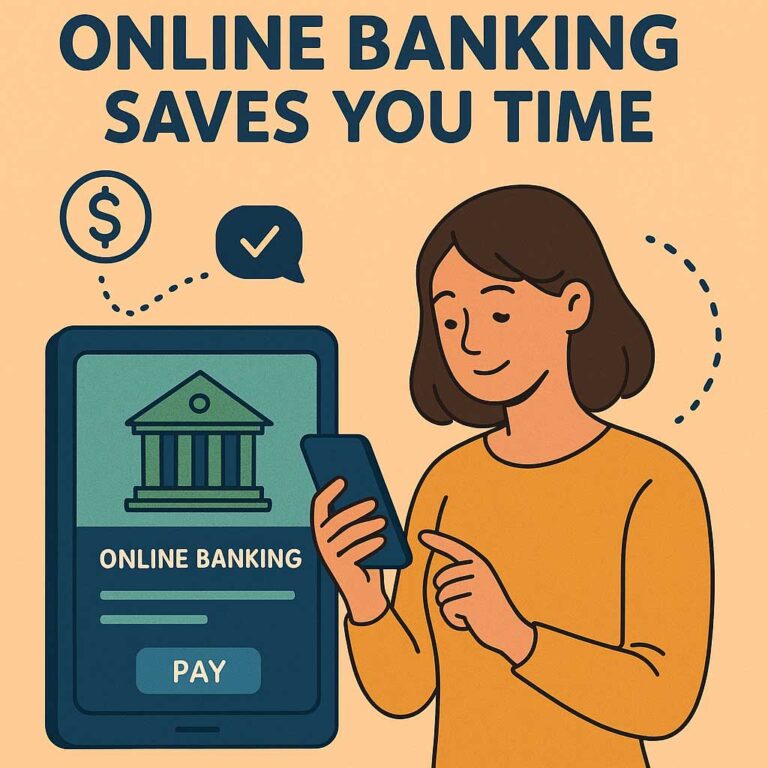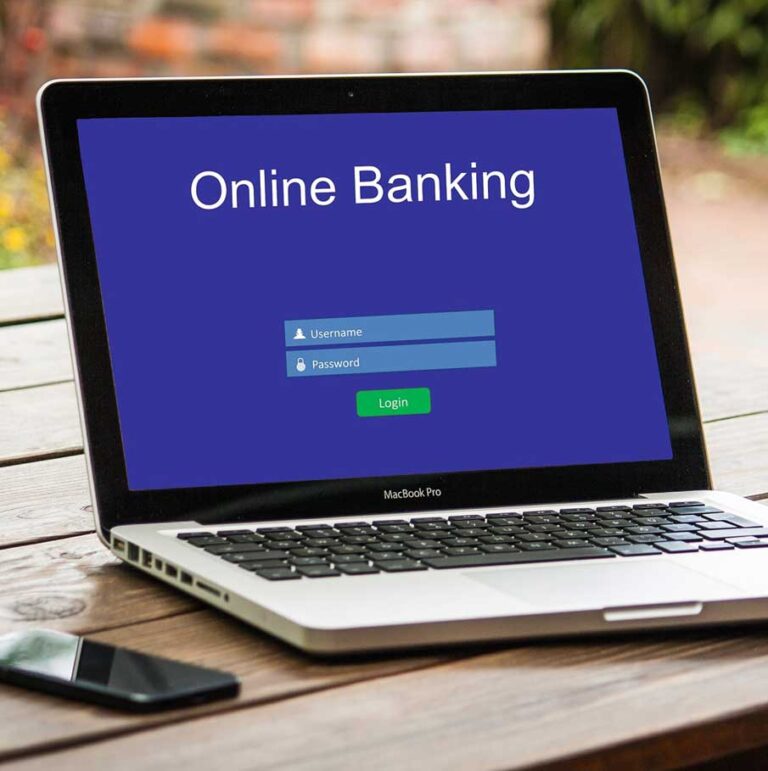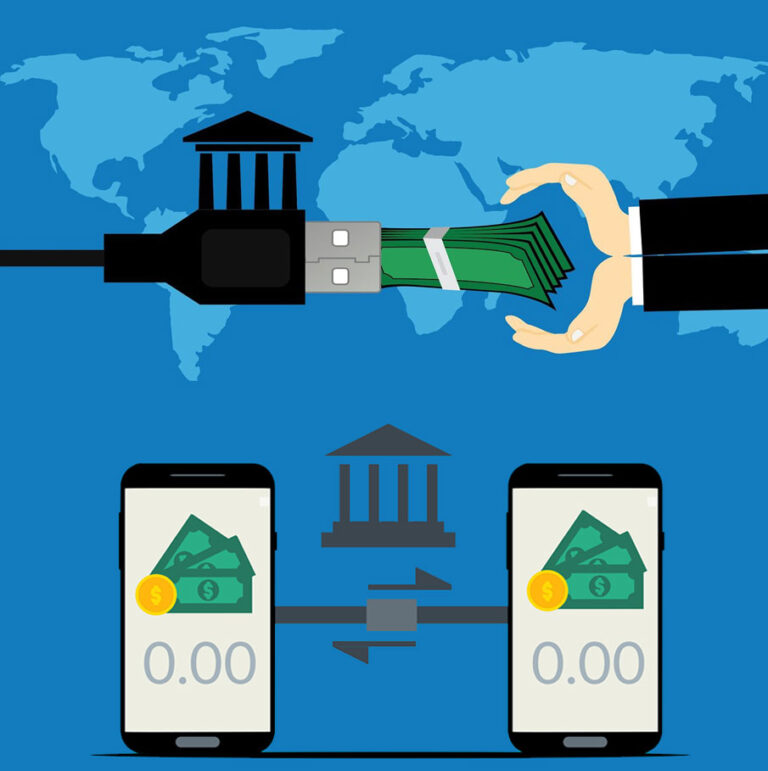What Are Online Banks and How Do They Work?
Introduction
In today’s fast-paced digital world, traditional banking is evolving to meet modern needs. More people are turning to digital financial solutions, leading to the rise of online banks. What Are Online Banks? Simply put, they are financial institutions that operate primarily over the internet, offering a wide range of services without the need for physical branches.
Online banks provide convenience, lower fees, and high-tech features, making them a popular choice for both individuals and small businesses. But how do they work, and what sets them apart from traditional banks? In this article, we’ll explore Online Banking, their features, common use cases, frequently asked questions, and the future of digital banking.
What Are Online Banks?
Online banking are financial institutions that conduct banking services entirely through digital platforms. Unlike traditional banks that rely on physical branches, online banks use websites, mobile apps, and digital tools to offer banking solutions.
Some online banks operate as independent digital-only institutions, while others function as divisions of well-established traditional banks. Regardless of the model, online banks provide essential financial services such as savings accounts, checking accounts, loans, and investment options.
How Do Online Banks Work?
Online banks function similarly to traditional banks, but they use technology to provide a seamless experience. Here’s how they operate:
- Account Opening – Customers can open accounts by visiting the bank’s website or app and providing necessary identification details.
- Deposits and Withdrawals – Funds can be deposited through mobile check deposits, direct deposits, or transfers from other accounts.
- Money Transfers – Users can send money instantly through bank transfers, peer-to-peer (P2P) payment services, or wire transfers.
- Bill Payments – Many online banking allow automated bill payments and scheduled transactions.
- Customer Support – Instead of physical branches, online banking offer support via chat, email, or phone.
- Security Measures – Encryption, two-factor authentication (2FA), and fraud detection ensure customer safety.
Features of Online Banks
Key Benefits of Online Banking
- 24/7 Accessibility – Customers can access their accounts anytime, anywhere.
- Lower Fees – Online banks save on operational costs, passing those savings to customers through reduced fees.
- Higher Interest Rates – Many online banking offer higher interest rates on savings accounts due to lower overhead expenses.
- Convenience – No need to visit a branch; everything is managed online.
- Enhanced Security – Advanced encryption and fraud monitoring ensure customer data protection.
Common Services Offered:
Online base banks provide a wide range of financial services, including:
- Checking and Savings Accounts – Essential banking accounts with no or minimal fees.
- Mobile Deposits – Scan and deposit checks directly from a smartphone.
- Loans and Credit – Personal loans, business loans, and credit options are available digitally.
- Investment and Wealth Management – Robo-advisors, stock trading, and financial planning tools.
- Foreign Transactions – International money transfers and multi-currency accounts.
Common Use Cases:
Online Banking for Individuals
For personal banking customers, online base banks simplify financial management:
- Managing Daily Expenses – Monitor spending, set budgets, and track transactions.
- Automated Savings – Set up recurring transfers for effortless saving.
- Bill Payments and Subscriptions – Automate payments to avoid missed due dates.
- Mobile Wallet Integration – Link accounts to Apple Pay, Google Pay, or Samsung Pay.
Online Banking for Small Businesses
Small businesses also benefit from online banking features:
- Payroll Management – Process employee salaries digitally.
- Vendor Payments – Schedule and automate supplier payments.
- Cash Flow Monitoring – Use digital tools to analyze revenue and expenses.
- Business Loans – Access quick funding with digital loan applications.
- Multi-User Access – Grant team members specific banking permissions.
Frequently Asked Questions:
Are Online Banks Safe?
Yes, online system use encryption, two-factor authentication, and fraud monitoring to ensure security. Many are insured by organizations like FDIC (U.S.) or equivalent institutions in other countries.
Can You Deposit Cash in an Online Bank?
Most online base banks do not accept direct cash deposits. However, customers can deposit cash through ATMs partnered with their bank, deposit to a linked traditional bank, or use services like Green Dot.
How Do Make Money?
Online banking earn revenue through interest on loans, transaction fees, and partnerships with financial service providers.
Do Online Banks Offer ATM Access?
Many banks partner with ATM networks, offering free withdrawals at thousands of locations. Some banks reimburse ATM fees as well.
The Future of Online Banking
AI-Powered Banking
Artificial Intelligence (AI) is shaping What Are Online Banks with smarter financial management tools, automated savings plans, and AI-driven fraud detection.
Blockchain and Cryptocurrency Integration
More online banking are integrating blockchain technology for secure transactions and offering cryptocurrency wallets for digital asset management.
Voice and Biometric Authentication
Passwords may soon become obsolete as online banking implement voice recognition, facial recognition, and fingerprint authentication for enhanced security.
Neobanks and Digital-Only Banks
Neobanks—fully digital financial institutions—are growing rapidly, providing personalized banking experiences without physical branches.
Conclusion
What Are Online Banking? They represent the next generation of banking, offering accessibility, convenience, and cost-effectiveness. Whether you’re managing personal finances or running a small business, Its provide a seamless, secure, and efficient banking experience. With continuous advancements in technology, the future of online banking promises even greater innovation, making financial management smarter and more intuitive. If you haven’t yet explored online banking, now is the perfect time to embrace the digital revolution!







